What a Fed interest rate cut could mean
US central bank to bow to pressure from Trump and cut rates for first time since financial crisis
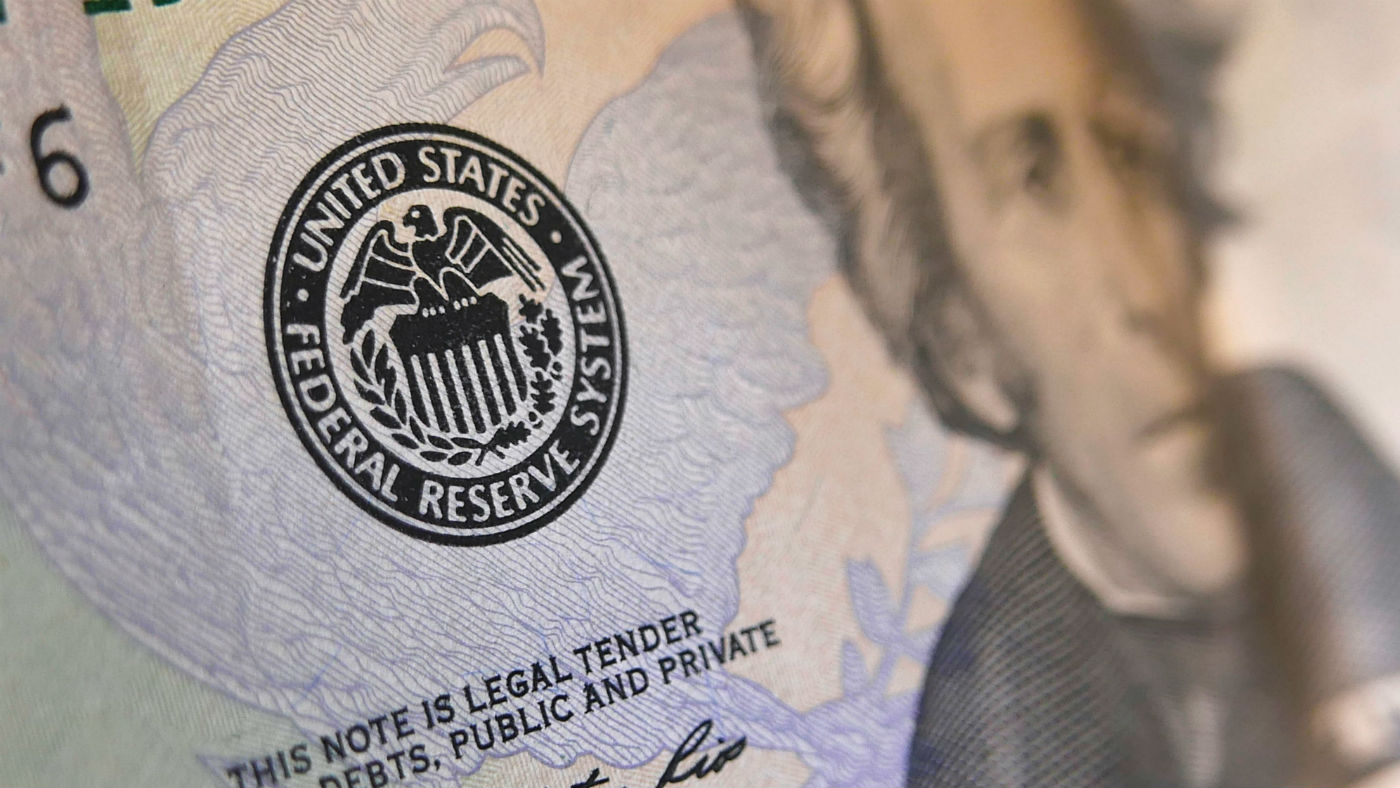
A free daily email with the biggest news stories of the day – and the best features from TheWeek.com
You are now subscribed
Your newsletter sign-up was successful
The US Federal Reserve is set to cut interest rates this week for the first time since the financial crisis over a decade ago.
Despite the US economy experiencing its longest-running growth streak in over 150 years, near-record low unemployment and record-high equity markets, Fed Chair Jerome Powell is widely expected to announce a cut of a quarter of a percent to 2.25% after a meeting of the central bank’s monetary policy committee on Wednesday.
With traders pricing in the chance of a rate cut at 80%, it would be the first reduction in the federal funds rate since 2008, and “would represent a remarkable reversal from the tightening cycle Powell pursued last year”, says the Financial Times, as he “seeks an insurance policy against a weakening global outlook and rising trade tensions”.
The Week
Escape your echo chamber. Get the facts behind the news, plus analysis from multiple perspectives.

Sign up for The Week's Free Newsletters
From our morning news briefing to a weekly Good News Newsletter, get the best of The Week delivered directly to your inbox.
From our morning news briefing to a weekly Good News Newsletter, get the best of The Week delivered directly to your inbox.
“Donald Trump has been pressuring the central bank to announce a bolder move, however, the latest growth figures suggest a more limited move”, says The Times.
Official figures showed the US economy grew at an annualised rate of 2.1% in the second quarter, slightly better than consensus expectations of 1.8%, buoyed by strong consumer spending.
As to the impact of a rate cut, investment strategist Ivan Martchev writing in Market Watch, says “it is a big mistake to be looking for a top in the dollar, which is what typically happens when the Federal Reserve starts a cycle of interest-rate cuts”.
“It is also a mistake to expect outperformance of emerging markets, which may happen temporarily as those countries tend to benefit from the perception of a weakening dollar due to their long-standing inverse correlation,” he adds.
A free daily email with the biggest news stories of the day – and the best features from TheWeek.com
Anneken Tappe for CNN Business says it “could be the start of a summer rally in stocks,” noting that “lower interest rates make borrowing cheaper for companies, which help business’ bottom lines and boost the stock market”.
“America's economy isn’t exactly on the brink of collapse regardless of whether and by how much the Fed cuts rates,” says Tappe, but “the current economic growth cycle is a decade old and, with looser monetary policy from the Fed, it could go on for longer”.
But not everyone is in agreement. Scott Minerd for Barron’s financial news site says “the consequences of the Fed’s actions in the next week could be with us for much longer than we think, culminating in the next recession and increasing the risk to financial stability”.
“In the meantime, the Fed could be delivering yet another sugar high to the economy that doesn’t address underlying structural problems created by powerful demographic forces that are constraining output and depressing prices” he argues, suggesting instead that “by almost every measure, policy makers should be considering another rate hike, not a rate cut, in anticipation of potential economic overheating from looming limitations on output.”
Elliott Goat is a freelance writer at The Week Digital. A winner of The Independent's Wyn Harness Award, he has been a journalist for over a decade with a focus on human rights, disinformation and elections. He is co-founder and director of Brussels-based investigative NGO Unhack Democracy, which works to support electoral integrity across Europe. A Winston Churchill Memorial Trust Fellow focusing on unions and the Future of Work, Elliott is a founding member of the RSA's Good Work Guild and a contributor to the International State Crime Initiative, an interdisciplinary forum for research, reportage and training on state violence and corruption.
-
 Political cartoons for February 16
Political cartoons for February 16Cartoons Monday’s political cartoons include President's Day, a valentine from the Epstein files, and more
-
 Regent Hong Kong: a tranquil haven with a prime waterfront spot
Regent Hong Kong: a tranquil haven with a prime waterfront spotThe Week Recommends The trendy hotel recently underwent an extensive two-year revamp
-
 The problem with diagnosing profound autism
The problem with diagnosing profound autismThe Explainer Experts are reconsidering the idea of autism as a spectrum, which could impact diagnoses and policy making for the condition
-
 Powell: The Fed’s last hope?
Powell: The Fed’s last hope?Feature Federal Reserve Chairman Jerome Powell fights back against President Trump's claims
-
 The end for central bank independence?
The end for central bank independence?The Explainer Trump’s war on the US Federal Reserve comes at a moment of global weakening in central bank authority
-
 Who will be the next Fed chair?
Who will be the next Fed chair?Today's Big Question Kevin Hassett appears to be Trump’s pick
-
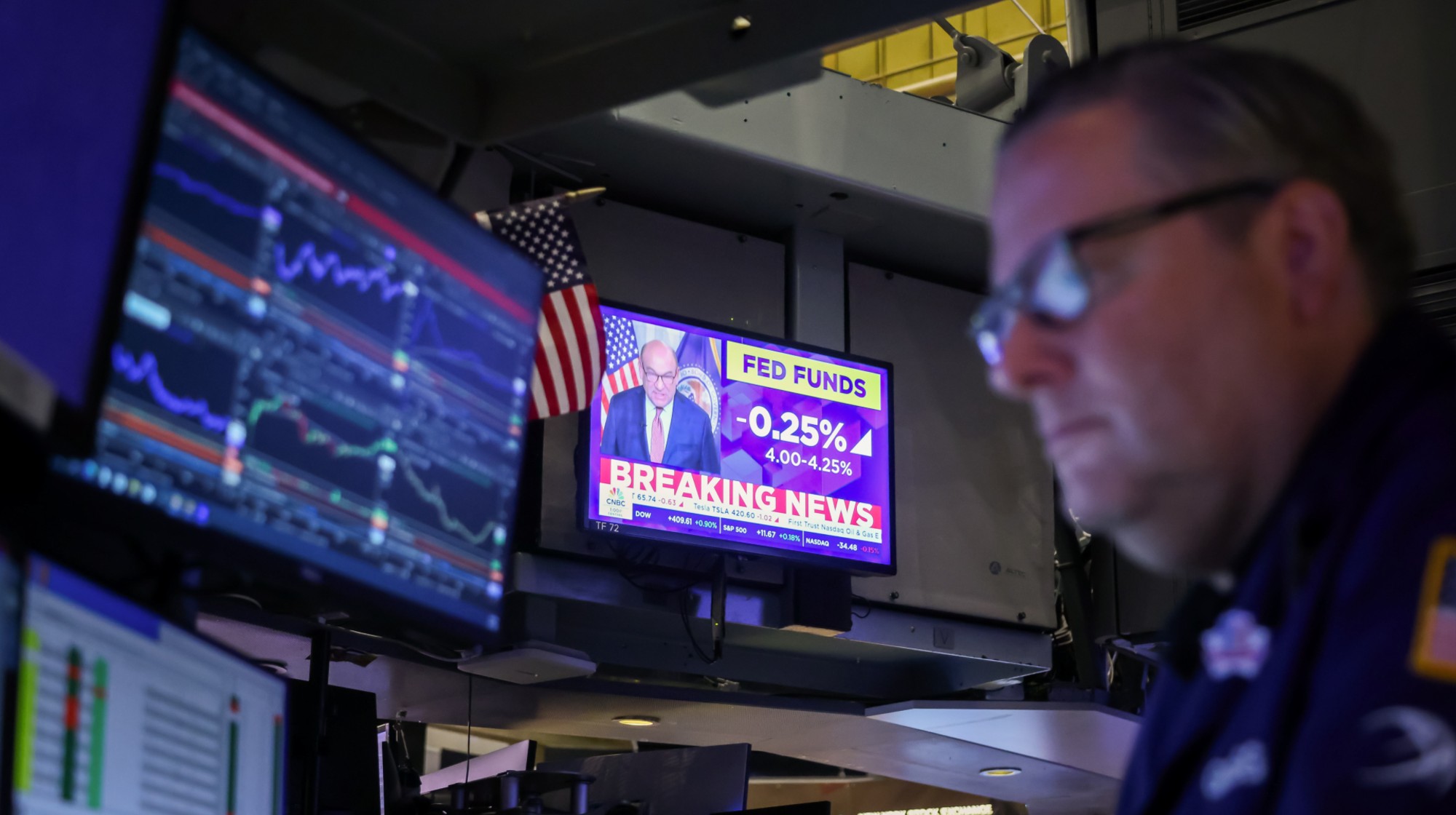 Fed cuts interest rates a quarter point
Fed cuts interest rates a quarter pointSpeed Read ‘The cut suggests a broader shift toward concern about cracks forming in the job market’
-
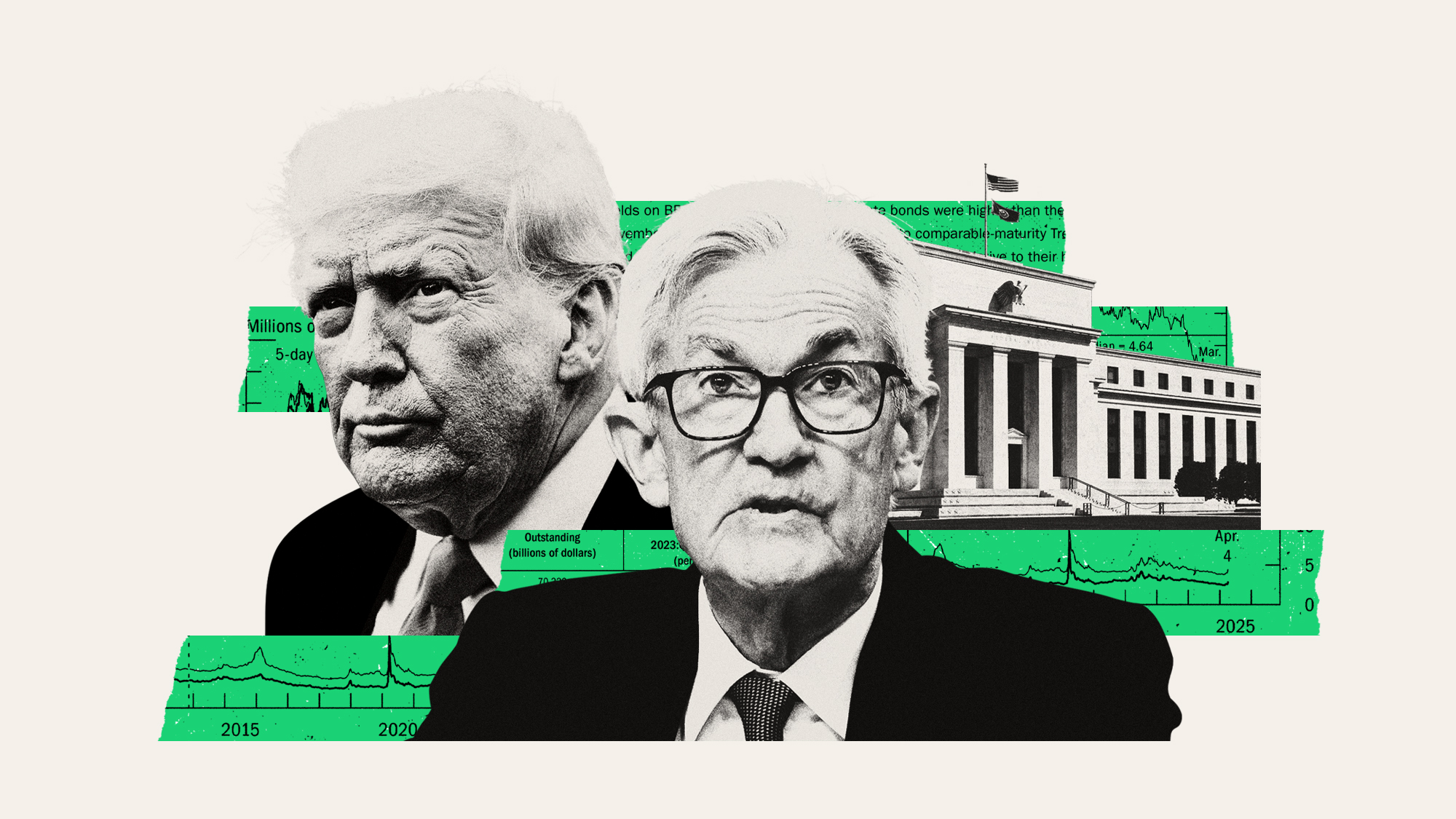 Trump's threats to fire Jerome Powell are unsettling the markets
Trump's threats to fire Jerome Powell are unsettling the marketsTalking Points Expect a 'period of volatility' if he follows through
-
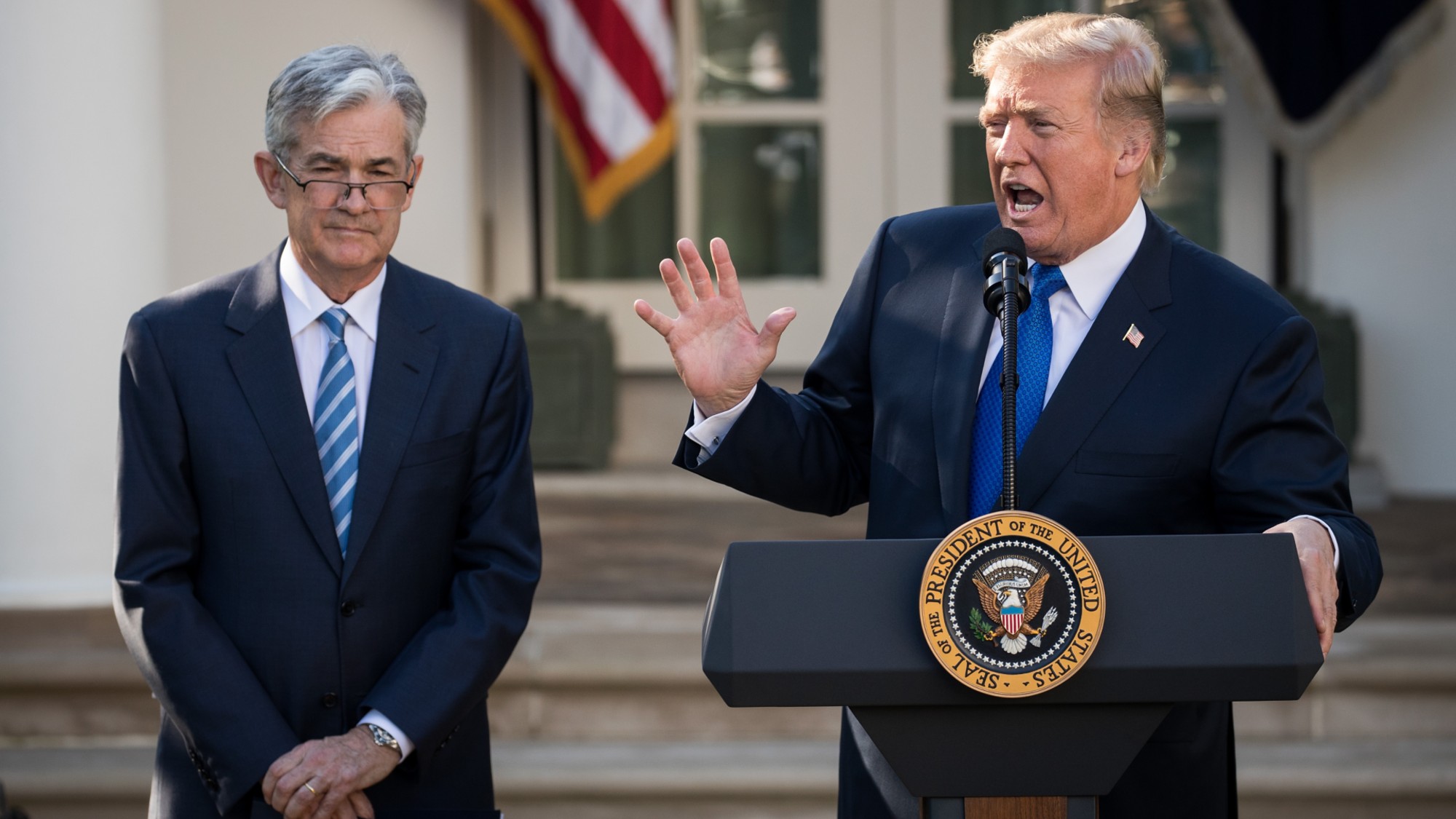 How will Wall Street react to the Trump-Powell showdown?
How will Wall Street react to the Trump-Powell showdown?Today's Big Question 'Market turmoil' seems likely
-
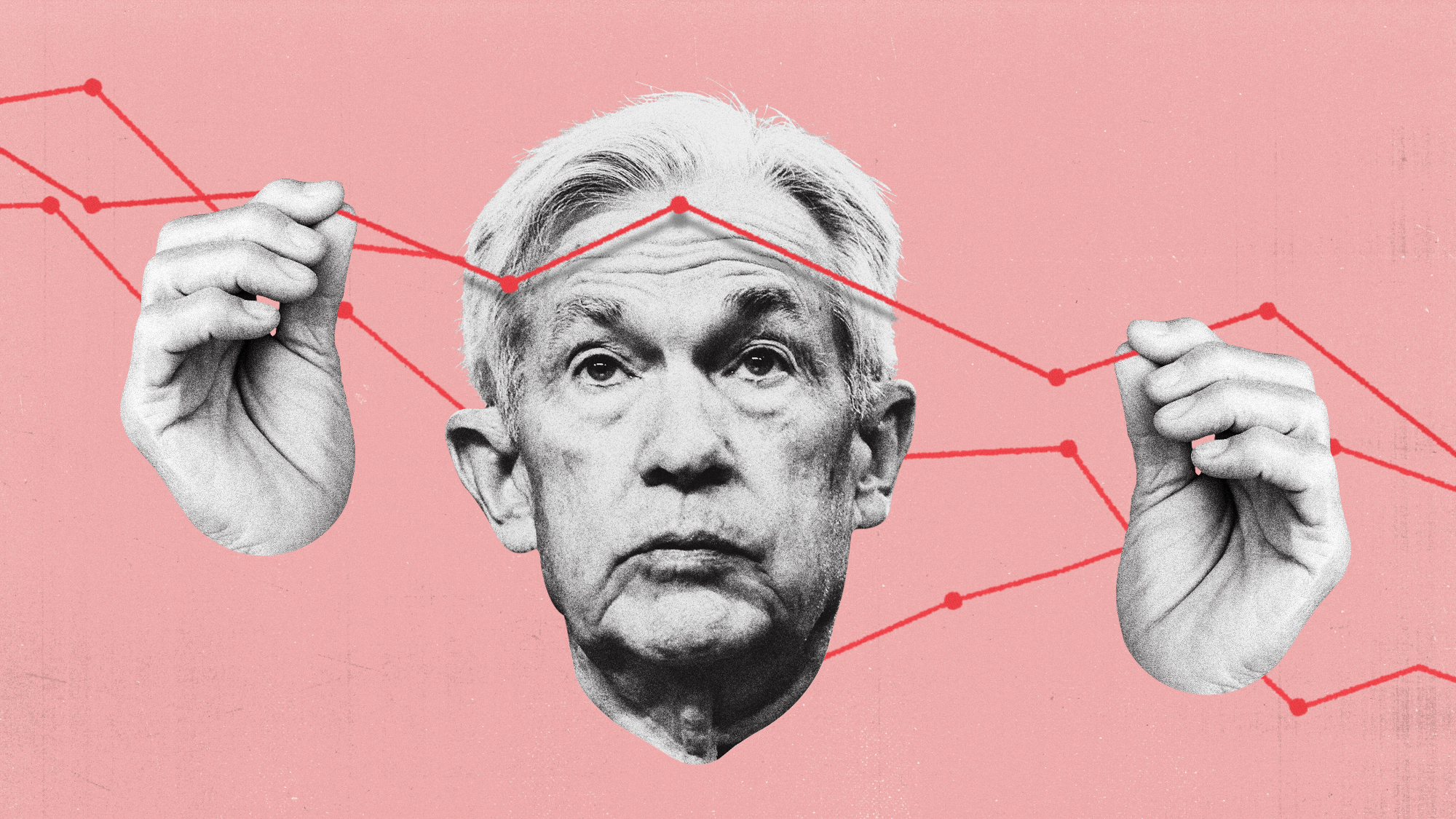 How will the Fed manage Trump's economy?
How will the Fed manage Trump's economy?Today's Big Question Jerome Powell is 'in a bind'
-
 Will Rachel Reeves have to raise taxes again?
Will Rachel Reeves have to raise taxes again?Today's Big Question Rising gilt yields and higher debt interest sound warning that Chancellor may miss her Budget borrowing targets